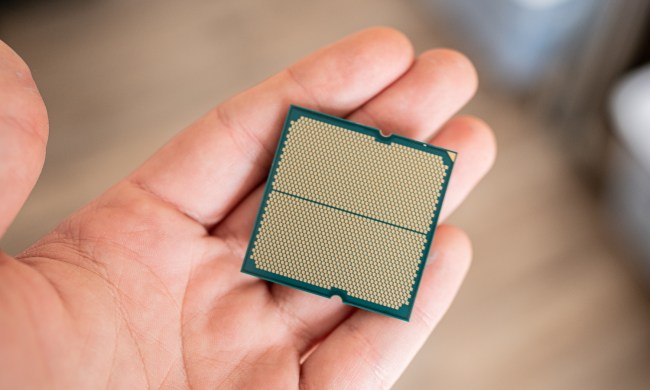With the latest refresh of its Legion gaming lineup, Lenovo is placing big bets on AMD’s Ryzen processors to bring the needed power, performance, and battery life. Rightfully so, AMD’s latest 7nm Ryzen 4000 mobile processors have attracted plenty of attention and praise for its performance and affordable price, making them a great fit for a portable gaming system.
The 4000 series aren’t available quite yet for desktops, but Lenovo also has a new gaming desktop as well, relying on AMD’s still capable and powerful Ryzen 3000 desktop family alongside the latest Nvidia RTX graphics.
Lenovo’s mobile Legion goes big

In addition to the 15-inch Ryzen-powered Legion 5 laptop that’s already on the market today, Lenovo is bringing an even larger 17-inch option to gamers.
Like its smaller sibling, the 17-inch Lenovo Legion 5 gaming laptop packs in plenty of performance, pairing AMD’s Ryzen 4000 H-series mobile CPU alongside rival Nvidia’s GeForce RTX 2060 graphics.
You’ll get the same immersive Dolby Atmos audio tuning with the built-in Harmon Kardon speaker system for audio and a fast 144Hz refresh rate display with FHD resolution. Everything is kept cool with Lenovo Legion ColdFront 2.0 thermal engineering.
With 7.5 hours of battery life and support for Rapid Charge Pro, though with gaming laptops, our expectations remain low.
The 15-inch Legion 5 starts at $759, while the 17-inch will start at $1,089 when it launches in September.
There will also be an upgraded version of the Legion 5 in the form of the Legion 5P for e-sports that tops out with more RAM and includes more tuning control to maximize system performance, but that system won’t be available in North America.

If you don’t need all that performance but want to stay within the Ryzen ecosystem, Lenovo’s 15.6-inch IdeaPad Gaming 3 may be a great companion for casual gaming. This system tops out with AMD’s Ryzen 7 4800 H-Series processor and Nvidia GeForce GTX 1650 Ti graphics.
While you won’t get the simulated Dolby Atmos tuning from the more premium Legion configurations, you do benefit from Dolby Audio sound from the dual speakers, and the system can be configured with up to a 1TB SSD, 32GB DDR4 memory, and 120Hz refresh rate display.
The IdeaPad Gaming 3 starts at $659 when in launches later this month.
Legion Tower 5 desktop

With the Legion Tower 5 desktop, Lenovo abandoned the desktop’s sculpted exterior aesthetics in favor of flatter surfaces that make it look more minimal. The simpler design makes the Legion Tower 5 more suited for use for gaming and for work, if needed, and the system can handle most tasks you throw its way thanks to the Ryzen 9 3950X and GeForce RTX 2070 GPU combo.
There is a lot of flexibility for expansion as well with a desktop, and the tower can be configured with up to two 1TB SSD and two 2TB 3.5-inch HDD for storage along with a whopping 128GB of DDR4 memory.
To keep things running smoothly, Lenovo claimed that it has improved the system’s thermals with larger fans, a 150-watt cooler, and optional 200W liquid cooling. The Legion Tower 5 will be available in October with prices starting at $829.
Lenovo also announced a scaled-down IdeaCentre Gaming 5 for casual gamers that tops out with AMD’s Ryzen 7 3700X processor and GeForce RTX 2060 graphics. Unfortunately, though, this system won’t arrive in North America.



